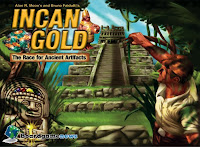Bibliotheke has come quite a ways, thanks to the evaluations and feedback (especially Randy and Caleb). Here are just a few notes to look forward to when we play it next:
Instead of one large board we have gone to 5 modular ones that fit together based upon the regions. Because the number of boards/regions used is based upon the number of players, you only need to now play with the board space you will use. Here is an updated snapshot of the boards:
Library book stacks will now be placed at the edge of the board by the corresponding library. The 5 regions are: 1-Mesopotamia, 2-Egypt/Levant, 3-Asia Minor, 4-Aegean, 5-Italy/N. Africa.
I have also been reved up about the fun of great replayability, and here is how I incoporate that in Biblioitheke. Each game played can select different combination of regions, as long as they are continuous. Each region has different spacing which effects gameplay. Each region has 5 libraries, and one is randomly deactivated in each region in each game, which can greatly alter strategies based upon distance and how many collection spaces are being battled over. Variety is still intact as there are endless combinations to create a collection based upon 3 different categories of Subject, Region and Period, with 5 variants within each category. Variation and flexibility cotinues in ordering each collection alphabetically or chronologically.
To fight the problem of library "camping" and lack of movement I have done the following: Each library stack begins only with 5 books, making it more feasible to go to another library rather than taking time to research finding a new book. A nice mechanic was created with many of the event cards pertaining to libraries. Each library begins with two tiles for collections. As collections are created, those tiles are removed from a bag, making the selection of a library for events more likely to happen to libraries with no collections (thus no player) and creating more movement.
Most of the other variations and interaction come through the event cards, and I made those more inticing by placing victory points in them and reducing their action point cost to 1. Within victory points I removed the points for first one to 3 collections so that finishing first does not ensure victory, while adding some different combinations by which one can pick up extra victory points. This helps to create multiple paths and opportunities to win.
I have also finalized after consuming research the 125 books to be used in the game. They all fit very accurately into the 3 categories and the variations within for balance. Their point values have also been accurately assessed on a grid so that not a single variation has a point advantage over another variation as a whole. Here are some samples with updated artwork:
This is the most complete prototype of the group, and the game can be fully played.












